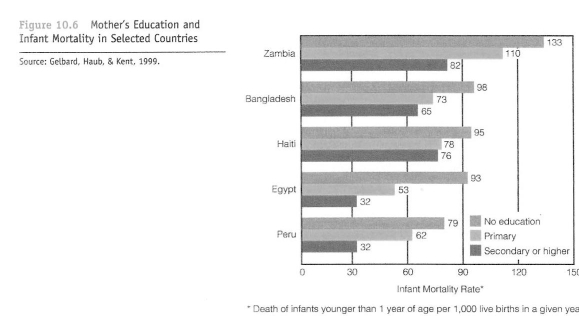Exam 10: Stratification and Global Inequality
Exam 1: Sociology: An Introduction175 Questions
Exam 2: The Tools of Sociology167 Questions
Exam 3: Culture155 Questions
Exam 4: Societies and Nations172 Questions
Exam 5: Socialization167 Questions
Exam 6: Interaction in Groups163 Questions
Exam 7: Sexuality150 Questions
Exam 8: Deviance and Social Control179 Questions
Exam 9: Collective Behavior, Social Movements, and Mass Publics157 Questions
Exam 10: Stratification and Global Inequality164 Questions
Exam 11: Inequalities of Social Class163 Questions
Exam 12: Inequalities of Race and Ethnicity184 Questions
Exam 13: Inequalities of Gender113 Questions
Exam 14: Inequalities of Youth and Age112 Questions
Exam 15: The Family155 Questions
Exam 16: Religion129 Questions
Exam 17: Education121 Questions
Exam 18: Economic Institutions146 Questions
Exam 19: Politics and Political Institutions166 Questions
Exam 20: Health and Medicine73 Questions
Exam 21: Population, Urbanization and the Environment157 Questions
Exam 22: Global Social Change182 Questions
Select questions type
The theory that social classes emerge because an unequal distribution of rewards is essential in complex societies is characteristic of
(Multiple Choice)
4.9/5  (30)
(30)
Which of the following crops has had the greatest influence on the world?
(Multiple Choice)
4.7/5  (27)
(27)
Describe Weber's view of social stratification and how it differs from that of Marx.
(Essay)
4.8/5  (42)
(42)
 -Which of the countries shown in the figure below has the highest infant mortality rate?
-Which of the countries shown in the figure below has the highest infant mortality rate?
(Multiple Choice)
5.0/5  (40)
(40)
Which of the following was NOT a consequence of the institutionalization of Christianity in the Middle Ages?
(Multiple Choice)
4.9/5  (36)
(36)
Which of the following contributed to the French Revolution?
(Multiple Choice)
4.9/5  (39)
(39)
According to Max Weber all of the following are dimensions of stratification EXCEPT:
(Multiple Choice)
4.8/5  (31)
(31)
Which of the following is NOT a characteristic of what Karl Polanyi calls "the great transformation"?
(Multiple Choice)
4.9/5  (39)
(39)
Explain how the Industrial Revolution could still be occurring in some parts of the world.
(Essay)
4.8/5  (37)
(37)
Which of the following is NOT characteristic of the functionalist theory of stratification?
(Multiple Choice)
4.9/5  (39)
(39)
The major forces that produce stratification are created by:
(Multiple Choice)
4.9/5  (45)
(45)
A stratification system in which there are rigid boundaries between social strata is:
(Multiple Choice)
4.7/5  (38)
(38)
Deference and demeanor function in all of the following ways EXCEPT:
(Multiple Choice)
4.9/5  (34)
(34)
The Industrial Revolution is still occurring in some parts of the world.
(True/False)
4.8/5  (43)
(43)
Which of the following crops contributed most significantly to the African slave trade in the New World?
(Multiple Choice)
4.7/5  (36)
(36)
The ideology of ________________ guided the people of China to accept their place in society.
(Multiple Choice)
4.9/5  (39)
(39)
Ideologies socialize new generations to believe that existing patterns of inequality are:
(Multiple Choice)
4.9/5  (31)
(31)
In Marx's theory of stratification, the way in which members of a given social class perceive their situation as a class is termed:
(Multiple Choice)
4.8/5  (34)
(34)
A social stratum into which people are born and in which they must remain for life is:
(Multiple Choice)
4.8/5  (35)
(35)
Showing 81 - 100 of 164
Filters
- Essay(0)
- Multiple Choice(0)
- Short Answer(0)
- True False(0)
- Matching(0)